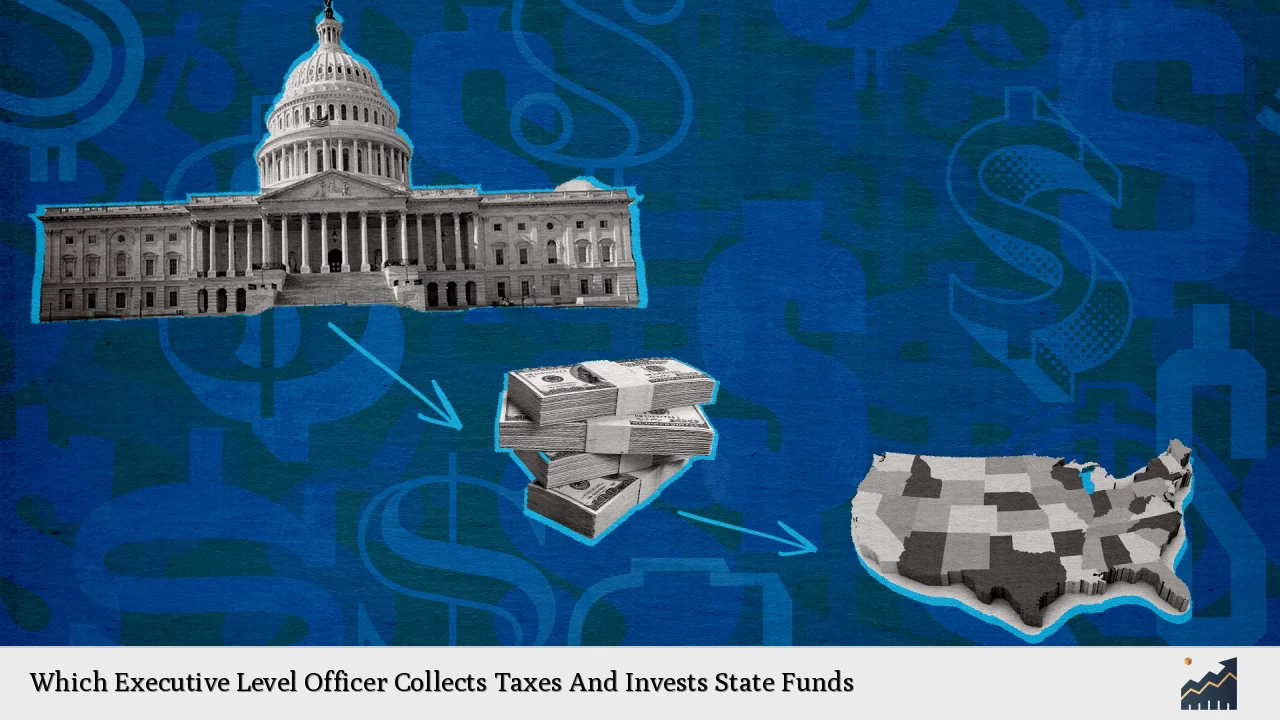The role of collecting taxes and investing state funds is primarily held by the State Treasurer and the Department of Taxation and Finance in each state. These officers are crucial in managing the financial resources of the state, ensuring that tax revenues are collected efficiently and that surplus funds are invested wisely to support public services and infrastructure. This article delves into the responsibilities, market trends, implementation strategies, risk considerations, regulatory aspects, and future outlook related to these executive-level officers.
| Key Concept | Description/Impact |
|---|---|
| State Treasurer | The State Treasurer oversees the management of the state’s financial resources, including tax collections, investments, and debt management. |
| Department of Taxation and Finance | Responsible for collecting taxes, administering tax laws, and managing state funds to support government operations. |
| Investment Portfolio Management | State Treasurers manage multi-billion-dollar investment portfolios to ensure liquidity and maximize returns on state funds. |
| Tax Revenue Trends | Tax revenues have shown fluctuations due to economic conditions, with many states underperforming their long-term revenue trends as of late 2023. |
Market Analysis and Trends
The landscape of state finance is continually evolving, influenced by economic conditions, regulatory changes, and shifts in investment strategies. Recent data indicates that state tax collections have been below long-term trends, with total collections in Q4 2023 reported at $12 billion lower than expected. This decline is attributed to a combination of factors including a return to pre-pandemic growth rates and significant tax cuts implemented in various states.
- Tax Revenue Performance: As of the end of 2023, tax revenues were approximately 3.2% below their 15-year trend nationally. States like California and New York experienced significant declines due to their heavy reliance on income from capital gains taxes which were adversely affected by stock market performance.
- Investment Strategies: State Treasurers are increasingly focusing on diversified investment portfolios that include safe securities and alternative investments such as private equity and infrastructure projects. This shift aims to enhance returns while managing risk.
- Interest Rates Impact: The recent rise in interest rates has prompted state treasurers to reassess their investment strategies. Higher rates can lead to increased borrowing costs but also present opportunities for better yields on fixed-income investments.
Implementation Strategies
To effectively collect taxes and invest state funds, several strategic approaches are employed:
- Technology Integration: Leveraging technology for tax collection processes enhances efficiency. Automated systems streamline tax return processing and improve taxpayer engagement through online services.
- Diversification of Investments: State Treasurers are diversifying their investment portfolios across various asset classes including equities, bonds, real estate, and alternative investments to mitigate risk.
- Public Engagement: Increasing transparency in financial operations helps build public trust. Regular reporting on tax collection performance and investment outcomes is essential.
Risk Considerations
Managing state finances involves inherent risks that must be carefully navigated:
- Economic Volatility: Fluctuations in economic conditions can significantly impact tax revenues. State Treasurers must prepare for downturns that may lead to budget shortfalls.
- Regulatory Changes: Changes in federal or state tax laws can affect revenue streams. Staying abreast of legislative developments is crucial for effective financial planning.
- Investment Risks: Investing state funds carries risks related to market volatility. A well-balanced portfolio can help mitigate these risks but requires ongoing assessment.
Regulatory Aspects
State Treasurers operate within a framework of regulations designed to ensure accountability and transparency:
- Compliance with Laws: The Department of Taxation and Finance must comply with all applicable tax laws while ensuring fair administration of tax policies.
- Investment Regulations: State investment practices are governed by regulations that dictate how public funds can be invested. This includes restrictions on certain high-risk investments.
- Oversight Mechanisms: Regular audits by independent bodies help ensure that financial practices align with statutory requirements and best practices.
Future Outlook
The future landscape for state treasurers appears both challenging and promising:
- Increased Demand for Public Services: As states recover from economic downturns, there will likely be increased demand for public services funded by tax revenues.
- Focus on Sustainable Investments: There is a growing trend towards sustainable investing as more states consider environmental, social, and governance (ESG) factors in their investment decisions.
- Technological Advances: Continued advancements in technology will likely enhance the efficiency of tax collection processes and investment management strategies.
Frequently Asked Questions About Which Executive Level Officer Collects Taxes And Invests State Funds
- What is the primary role of a State Treasurer?
The State Treasurer manages the state’s financial resources, oversees tax collection, invests surplus funds, and manages debt. - How do State Treasurers invest state funds?
State Treasurers invest surplus funds in a diversified portfolio aimed at maximizing returns while ensuring liquidity. - What challenges do State Treasurers face?
Challenges include economic volatility affecting tax revenues, regulatory changes impacting financial strategies, and risks associated with investments. - How does technology impact tax collection?
Technology streamlines processes through automation, improving efficiency in tax return processing and enhancing taxpayer engagement. - What are current trends in state tax revenues?
Many states are experiencing declines in tax revenues compared to long-term trends due to various economic factors. - Why is diversification important for state investments?
Diversification helps mitigate risks associated with market volatility while aiming for stable returns on investments. - What role does public engagement play in state finance?
Public engagement fosters trust through transparency about financial operations and regular reporting on performance metrics. - What is the outlook for sustainable investing among states?
The trend towards sustainable investing is expected to grow as states increasingly consider ESG factors in their investment decisions.
This comprehensive overview highlights the critical roles played by executive-level officers responsible for collecting taxes and investing state funds. By understanding their responsibilities within the broader economic context, stakeholders can better appreciate the complexities involved in managing public finances effectively.

